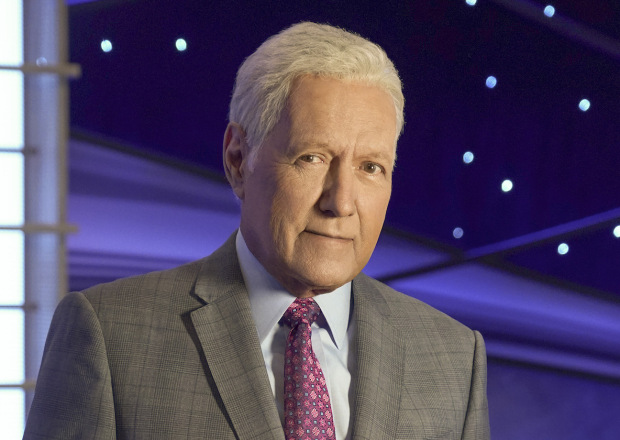Alex Trebek has been hosting Jeopardy! for more than 35 years, nearly my whole life. I watched him woo a nation with his smile, charm, and grace from my grandpa’s lap; I watch him with my sons now, shouting out answers with the best of ‘em.
In March of 2019, the beloved host announced his diagnosis of stage 4 pancreatic cancer, which has a 3% survival rate. He hasn’t missed a day of work since, and continues to share his journey, despite the sometimes unbearable side effects of chemo.
His announcement hit me, as I’m sure it did the 9 million-plus viewers who tune in weekly to test their arm-chair knowledge and enjoy the banter between the host and his guests. (Interesting fact: viewership reached a high of 13.8 million during James Holzhauer’s recent run; in turn, a portion of his winnings went to pancreatic cancer support.)
It hit me not only because it’s jarring to think of the mortality of pop-culture staples, but also because pancreatic cancer took my father when he was 51. I remember receiving the news while I was grocery shopping–eight months pregnant with my first son–sobbing in the natural foods aisle, a box of cereal in my hands. I would later find out that he (and I, and possibly my sons) carry a BRCA1 gene mutation, increasing risk for breast, ovarian, prostate, and pancreatic cancers.
Fast forward 15 years and I think of my dad when I hear Trebek talk about his symptoms, his sources of strength, his struggles with treatment, and his reconciliation with the fact that he has to plan for his last show. 79-year-old Trebek has been vulnerable and candid with his international audience. From regrets to humor to depression, he talks about it all, on set and in interviews. His open communication has led to greater public awareness about pancreatic cancer. He’s received an outpouring of support, such as this letter from a pancreatic cancer survivor. He sometimes chokes up on screen when his fans show support, his emotions getting the best of him.
He’s also received thanks for sharing his symptoms. In one letter, a fan wrote that Trebek’s comments about pancreatic cancer symptoms prompted the fan’s brother to get tested. The brother was found to be stage 1, with good prognosis. Trebek shared the letter in a recent ABC special, quoting the fan, “You saved my brother’s life.”
Indeed, early diagnosis is the best chance for surviving the disease that kills 45,000 people in the U.S. each year. With vague symptoms not easy to detect in the early stages, what are other ways pancreatic cancer can be caught early? For starters, recognizing indicators for genetic testing.
Research has found that about 3% to 4% of people with pancreatic cancer have a genetic mutation, such as in the genes BRCA1 and BRCA2, according to the National Cancer Institute, and people with a family history of pancreatic cancer are nine times more likely to develop it than others.
This means current medical guidelines recommend any person who has pancreatic cancer should be offered genetic testing of the BRCA1 and BRCA2 genes. These gene mutations, while likely the culprit, may also be helpful to determine treatment. And if you have a first or second degree relative who has had pancreatic cancer, genetic testing should also be considered. If someone carries one of these gene mutations, it’s a 50-50 chance it will be passed from carrier to child. This means if your dad, your grandpa, your cousin, etc. has had the disease, you should consider genetic counseling to learn more about the option of testing.
Trebek may not carry the BRCA gene mutation (he hasn’t gone public about whether he’s been tested), but he does carry the burden/blessing of being in the public’s eye while battling a debilitating disease. Here’s hoping this blog makes a tiny ripple in the waters of awareness around pancreatic cancer, an awareness that Jeopardy! and its fans are helping spread. Thank you fans, and thank you Mr. Trebek.
If you have questions about genetic testing for BRCA genes or mapping family health history, please contact one of our board-certified genetic counselors today.

